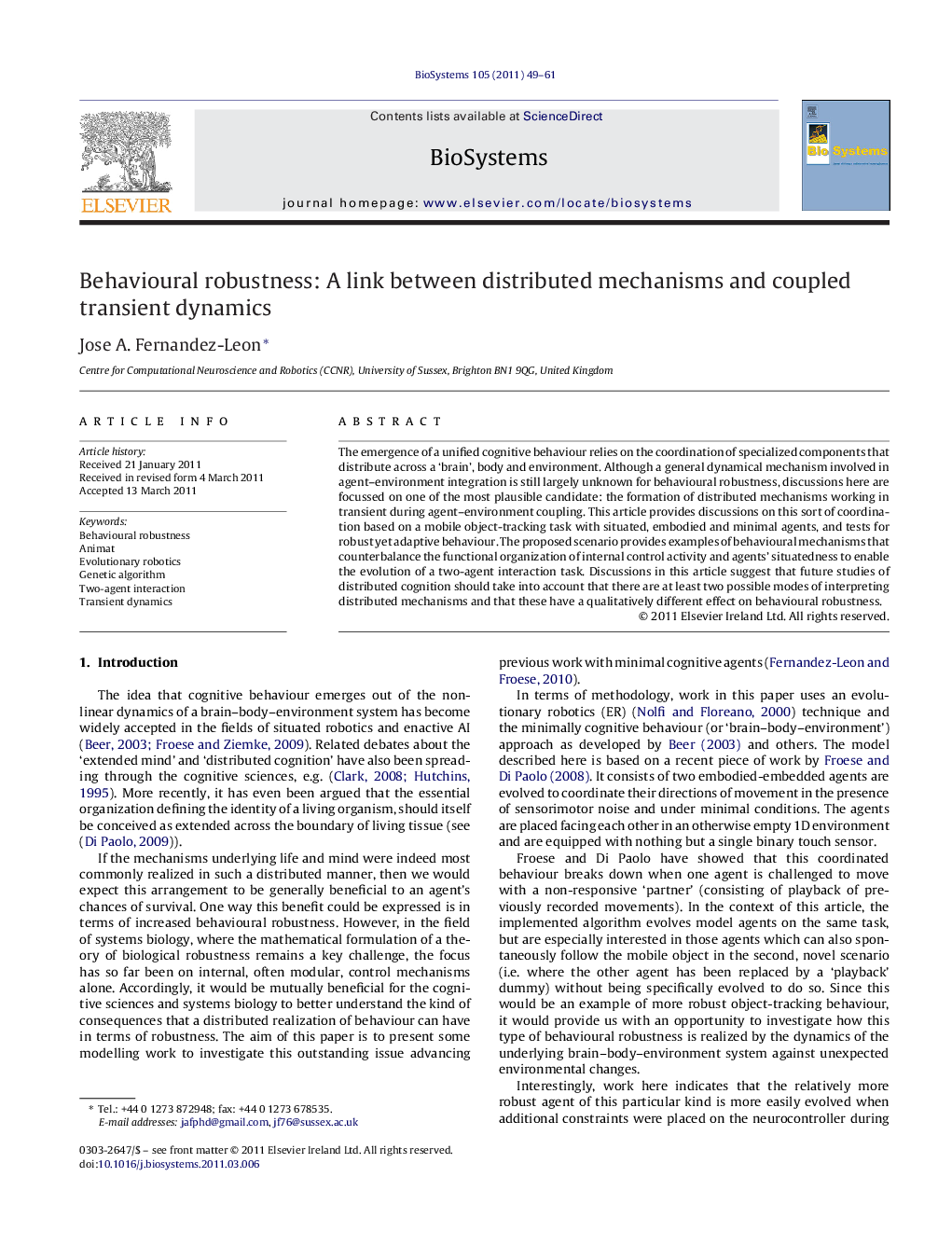| Article ID | Journal | Published Year | Pages | File Type |
|---|---|---|---|---|
| 2076717 | Biosystems | 2011 | 13 Pages |
Abstract
The emergence of a unified cognitive behaviour relies on the coordination of specialized components that distribute across a 'brain', body and environment. Although a general dynamical mechanism involved in agent-environment integration is still largely unknown for behavioural robustness, discussions here are focussed on one of the most plausible candidate: the formation of distributed mechanisms working in transient during agent-environment coupling. This article provides discussions on this sort of coordination based on a mobile object-tracking task with situated, embodied and minimal agents, and tests for robust yet adaptive behaviour. The proposed scenario provides examples of behavioural mechanisms that counterbalance the functional organization of internal control activity and agents' situatedness to enable the evolution of a two-agent interaction task. Discussions in this article suggest that future studies of distributed cognition should take into account that there are at least two possible modes of interpreting distributed mechanisms and that these have a qualitatively different effect on behavioural robustness.
Related Topics
Physical Sciences and Engineering
Mathematics
Modelling and Simulation
Authors
Jose A. Fernandez-Leon,
